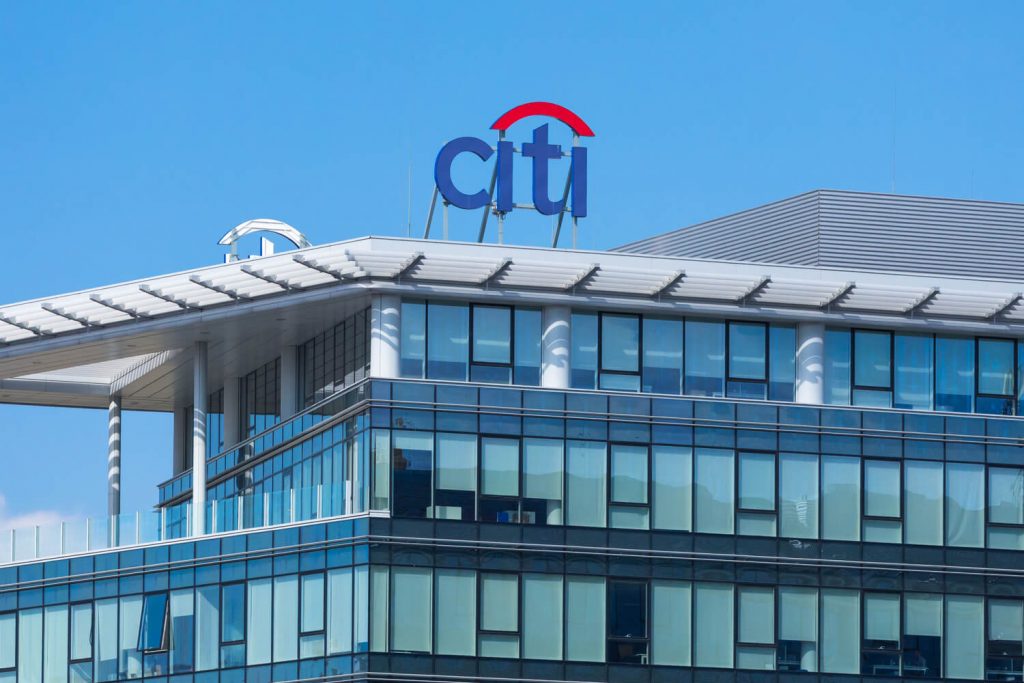
Ethereum Burnt Hits 100,000 Amid Chain Split as NFT Fever Takes Pace
The Ethereum mainnet has split in two due to a bug fix and left nodes racing to update. Elsewhere, MicroStrategy continues to make bullish splashes with another bitcoin acquisition, and Citigroup aims to become the second bank to add bitcoin futures to the product list.
- Over 100,000 ETH have now been burnt on the Ethereum blockchain
- Ethereum blockchain splits in two
- MicroStrategy doubles down again on bitcoin
- Citigroup announces bitcoin futures trading product
- PayPal increase crypto exposure for UK customers
- Big-ticket reports to watch out for this week
Ethereum has now burnt over 100,000 ETH
It has been several weeks since the Ethereum blockchain implemented the London Hard Fork, also known as Ethereum Improvement Proposal (EIP) 1559, which is part of the much wider Ethereum 2.0 release. As part of the upgrade, which focused on stabilizing transaction fees, ETH collected as part of the transaction is now burnt during every new block.
At the time of writing, the current burn rate stands at 3.83 ETH/min and since the upgrade was implemented on August 5th, approximately 136,000 ETH have been burnt so far. At current Ether price levels, this equates to $430 million.
However, one sector has, so far, stood above all others for the most ETH burnt. After experiencing a frenzy of activity during the first quarter of 2021, which included a record $69 million purchase, the non-fungible token (NFT) sector has once again regained popularity.
According to DappRadar, $1.2 billion worth of NFTs sales were made during July 2021, which is a significant increase from the first half of the year. During the first two quarters, $2.5 billion sales were made. July alone nearly accounts for half of all sales for the year.
Specifically within the sector, the NFT marketplace OpenSea is the biggest ETH burner, with daily trading volumes climbing above $49 million on the 1st of August. Just behind OpenSea other popular platforms are also adding to the ETH burn. These include the decentralized exchange Uniswap, the NFT game Axie Infinity, and the stablecoin company Tether.
Ethereum blockchain splits into two
Alongside the ongoing burn of ETH, the world’s second-largest blockchain experienced a chain split last week.
Around mid-August, developers identified a weakness in the blockchain’s main node software, Go Ethereum (or Geth). The Go Ethereum platform is used by individuals or entities to connect to the Ethereum mainnet. It can be used by those wishing to operate a full node on the network.
Referred to as the Consensus bug, the weakness has caused all nodes that were running on older versions of Go Ethereum (v1.10.7 or earlier) to split from the main network. To address the problem, a new update, referred to as ‘Hades Gamma’, was distributed to all network participants. However, although the patch was distributed widely, there are a number of full nodes that had not yet made the upgrade.
Data collected from Ethernodes.org showed that nearly 74.6% of all Ethereum blockchain nodes use Geth software. Of the Geth nodes, 28.4% were not running the latest version. This means that over 50% of all Ethereum nodes are running software that is at risk. These older nodes splitting from the mainnet has left many worrying about the possibility of double-spending attacks, which could lead to potential losses.
Members of the crypto community were advised not to make any transactions over the network until the issue was fully resolved. At the time of writing the price of Ether had not been greatly affected. All node members are now being encouraged to update to the latest version of Go Ethereum software.

MicroStrategy’s third-quarter bitcoin purchase
The business intelligence firm, MicroStrategy, last week announced it was once again doubling down on bitcoin. With a portfolio of over 100,000 bitcoin, a further 3,907 were purchased during the third quarter of 2021. The coins were acquired at an average purchase price of $45,294.
The news was announced via a tweet from the company’s CEO, and bitcoin bull, Michael Saylor. The tweet reads “Microstrategy has purchased an additional 3,907 bitcoins for ~$177 million in cash at an average price of ~$45,294 per bitcoin. As of 8/23/21 we hodl ~108,992 bitcoins acquired for ~$2.918 billion at an average price of ~$26,769 per bitcoin.”
This investment is the latest in a long line of bitcoin purchases for MicroStrategy, which is listed on the Nasdaq exchange. Driven by Saylor’s belief in bitcoin, the company’s value is now closely tied with bitcoin prices, with its stock price (MSTR) reflecting bitcoin’s own price movements.
MSTR stock fell sharply when bitcoin prices fell from all-time highs in April to lows of $29,000 in July. Thankfully for MicroStrategy investors, the stock is now climbing again after the latest resurgence of the cryptocurrency market.
The gamble on the future of bitcoin is one that is currently paying off for the company and one that will continue to do so if bitcoin continues to climb. MicroStrategy’s bitcoin holdings were acquired for a total of $2.918 billion and are now worth $5.3 billion at bitcoin’s current price levels.
After news broke of the acquisition on Monday, the US Security and Exchange Commission (SEC) was also sent a filing that outlined the purchase. The acquisition of the bitcoins occurred between the 1st of July and the 23rd of August.
Citigroup to offer bitcoin futures
One of the world’s largest banking organizations, Citigroup, will soon increase crypto exposure for institutional clients by offering the ability to trade bitcoin futures.
In a statement released during the week, the bank confirmed that it was seeking approval to allow the trade of futures contracts on the Chicago Mercantile Exchange (CME). The CME is a popular exchange for digital asset trading. Instead of trading on the immediate spot price, futures allow investors to speculate on the price of bitcoin at a predefined date in the future.
A spokesperson for Citigroup commented during the week. “Our clients are increasingly interested in this space, and we are monitoring these developments. Given the many questions around regulatory frameworks, supervisory expectations, and other factors, we are being very thoughtful about our approach. We are presently considering products such as futures for some of our institutional clients, as these operate under strong regulatory frameworks.”
From comments made to the Financial Times, the move to bitcoin futures is to address the surging demand for cryptocurrencies. The bank is the second to offer a futures product, just losing out to Goldman Sachs that released a product in June 2021. Goldman Sachs partnered with Galaxy Digital to facilitate the offering.

PayPal to launch cryptocurrency services in the UK
After becoming one of the first global payment providers to offer the ability to buy and sell cryptocurrencies, PayPal is now widening that offering to UK customers.
Cryptocurrency services were first offered to US customers in October 2020. Customers were provided with the option to purchase Bitcoin, Ethereum, Bitcoin Cash, and Litecoin. Users can then leave the cryptocurrency within the PayPal platform or use it to pay for goods and services at specific merchants. The expectation is that the same flexibility will be offered to UK consumers.
Jose Fernandez da Ponte, PayPal’s general manager for blockchain commented on the announcement during the week. “It has been doing really well in the U.S., we expect it’s going to do well in the U.K. The tokens and coins have been around for a while but you have to be a relatively sophisticated user to be able to access that. Having that on a platform like ours makes a really good entry point.”
PayPal partnered with Paxos, a blockchain and financial infrastructure company when initially launching crypto services back in 2020. It is the expectation that Paxos will continue to facilitate the products for the UK.
Big-ticket reports to watch out for this week:
Monday – Australia Retail Sales (MoM), Euro Markit PMI Composite, UK Markit Services PMI, US Existing Home Sales, New Zealand Retail Sales (QoQ)
Tuesday – China Non-Manufacturing PMI & Manufacturing PMI, Japan Consumer Confidence
Wednesday – Australia Markit Manufacturing PMI, China Caixin Manufacturing PMI, European Markit Manufacturing PMI, UK Markit Manufacturing PMI, European Unemployment Rate, Canada Markit Manufacturing PMI, US Markit Manufacturing PMI, US ISM Manufacturing PMI
Thursday – Australia Balance of Trade, China Retail Sales (MoM & YoY), China Inflation Rate, Canada Balance of Trade, US Balance of Trade, US Initial Jobless Claims
Friday – Australia Markit Services PMI, Australia Markit Services, Australia Retail Sales (MoM), Caixin Services PMI, European Markit Composite, UK Markit Services PMI & Composite PMI, European Retail Sales (MoM), US Nonfarm Payroll, US Markit Services PMI & Non-Manufacturing PMI
To stay up to date on all things crypto, like Xcoins on Facebook, follow us on Twitter, Instagram, LinkedIn, and sign up at the bottom of the page to subscribe.

